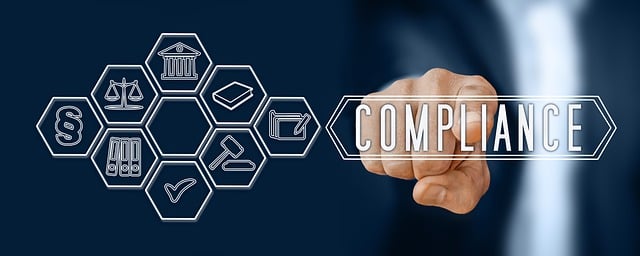Mastering Permit Renewals: Expert Legal Assistance for Compliance

Industry regulations, with their sector-specific requirements, demand meticulous navigation. Legal p…….
Understanding Licensing-and-Regulatory Compliance
Licensing-and-regulatory compliance refers to the process of adhering to laws, rules, and specifications that apply to a particular business or industry. It ensures that organizations operate within legal and ethical boundaries, maintain transparency, and fulfill their obligations as mandated by governing bodies. This encompasses a wide array of activities ranging from obtaining necessary permits to following industry-specific regulations. The core components of licensing-and-regulatory compliance include regulatory understanding, policy adherence, internal controls, risk management, and reporting mechanisms. Its historical context dates back to the earliest forms of government oversight, where compliance was necessary for the protection of public health, safety, and the environment. It plays a critical role in maintaining trust among consumers, stakeholders, and regulatory authorities.
Global Impact and Trends
Licensing-and-regulatory compliance has a profound global impact, as it influences international trade, market access, and cross-border operations. Global trends in this area are shaped by factors such as technological advancements, evolving consumer expectations, geopolitical shifts, and the increasing complexity of regulations. Different regions are affected differently; for instance, the European Union’s General Data Protection Regulation (GDPR) has set a benchmark for data privacy worldwide. Similarly, the United States’ stringent pharmaceutical and financial regulations influence compliance standards in these sectors globally.
Economic Considerations
The economic aspects of licensing-and-regulatory compliance are multifaceted. It affects market dynamics by creating barriers to entry for new businesses and influencing investment patterns. For instance, a stringent regulatory environment can deter investments or lead to higher operational costs. Conversely, robust compliance mechanisms can build investor confidence and open up new markets. Licensing-and-regulatory compliance is integral to economic systems as it underpins the integrity of financial markets, ensures fair competition, and safeguards against fraudulent activities that could otherwise destabilize economies.
Technological Advancements
Technology has significantly impacted licensing-and-regulatory compliance through advancements in data analytics, blockchain, artificial intelligence (AI), and machine learning (ML). These technologies enable more efficient monitoring, reporting, and auditing of regulatory compliance. For example, blockchain technology can provide transparent and immutable records for transactions, while AI algorithms can predict potential areas of non-compliance. The future potential of these technologies includes more sophisticated risk assessments, automated compliance checks, and real-time regulatory updates.
Policy and Regulation
The legislative framework governing licensing-and-regulatory compliance is complex and varies by jurisdiction. Key policies and regulations include the Sarbanes-Oxley Act (SOX) in the U.S., the UK’s Financial Conduct Authority (FCA) guidelines, and the International Organization for Standardization (ISO) standards. These frameworks are critical in shaping how organizations approach compliance, often dictating the implementation of compliance management systems (CMS). The influence of these policies is significant, as they can dictate corporate behavior, impact financial stability, and shape industry practices.
Challenges and Criticisms
One of the main challenges in licensing-and-regulatory compliance is keeping pace with the ever-changing regulatory landscape. The complexity of compliance requirements can be overwhelming for businesses, especially small to medium-sized enterprises (SMEs). Additionally, there are concerns regarding the potential for regulatory capture, where industry interests unduly influence regulatory decisions. To address these issues, organizations should invest in adaptable compliance programs and advocate for transparent and accountable regulatory processes.
Case Studies
Several case studies exemplify the successful application of licensing-and-regulatory compliance. For instance, Volkswagen’s emissions scandal highlighted the importance of compliance in preventing corporate misconduct. The company faced significant fines and a tarnished reputation due to its non-compliance with environmental regulations. On a positive note, Apple’s commitment to privacy, reflected in its compliance with GDPR, has fostered consumer trust and market leadership. These examples underscore the critical role of compliance in maintaining corporate integrity and consumer confidence.
Future Prospects
The future outlook for licensing-and-regulatory compliance is one of continued evolution. Emerging trends include a greater emphasis on data protection, cybersecurity, and environmental sustainability. The rise of global regulatory cooperation, such as through the Organisation for Economic Co-operation and Development (OECD), suggests a harmonization of standards across borders. Strategic considerations for organizations include investing in compliance expertise, adopting agile compliance processes, and leveraging technology to stay ahead of regulatory changes.
Conclusion
Licensing-and-regulatory compliance is a dynamic field that plays a pivotal role in ensuring the responsible operation of businesses within the legal and ethical frameworks set by governments and international bodies. Its importance cannot be overstated, as it directly impacts market integrity, consumer protection, and global economic stability. By navigating the challenges and embracing the opportunities presented by technological advancements and evolving regulations, organizations can not only comply with legal obligations but also build resilience and foster trust among stakeholders.
Licensing-and-Regulatory Compliance in Practice: A Guide for Organizations
By following these steps, organizations can not only meet their licensing-and-regulatory compliance obligations but also position themselves for long-term success and sustainability.

Industry regulations, with their sector-specific requirements, demand meticulous navigation. Legal p…….

Non-compliance with laws and regulations can severely harm organizations, leading to legal issues, r…….

Navigating complex regulatory landscapes requires permit legal help for business compliance. This in…….

Legal compliance checks are crucial for securing any business by evaluating operations against laws,…….

Managing license renewals is critical for businesses aiming to avoid compliance issues, penalties, a…….

Regulatory compliance is vital for businesses aiming to protect their reputations, avoid legal issue…….

Mastering industry regulations is vital for businesses to ensure operational efficiency, legal integ…….

Navigating dynamic market regulations requires businesses to adopt robust regulatory compliance stra…….

Regulatory compliance is a critical yet intricate task for businesses, demanding constant vigilance…….

Renewal processes, varying across industries, are crucial for businesses aiming to avoid legal pitfa…….